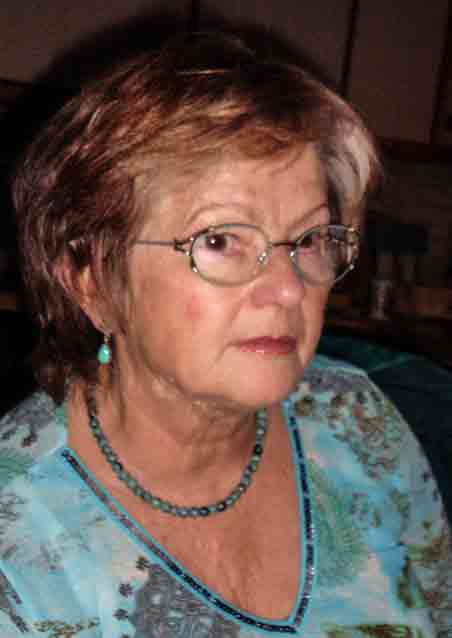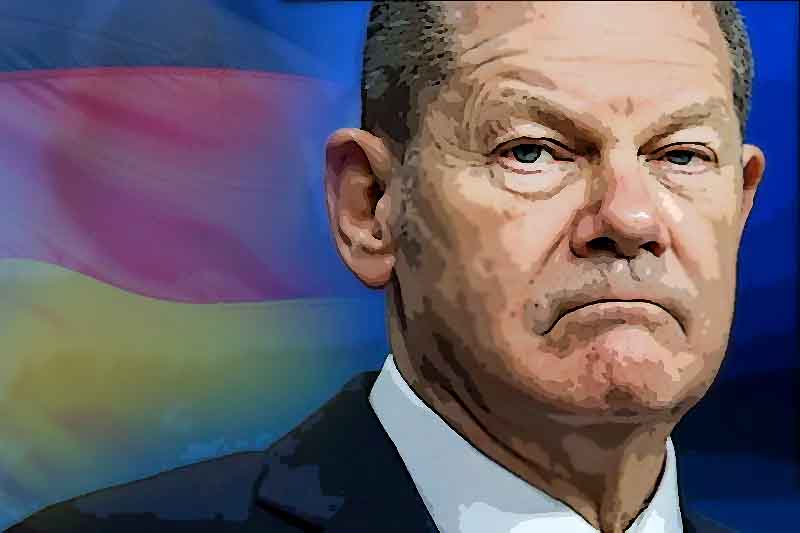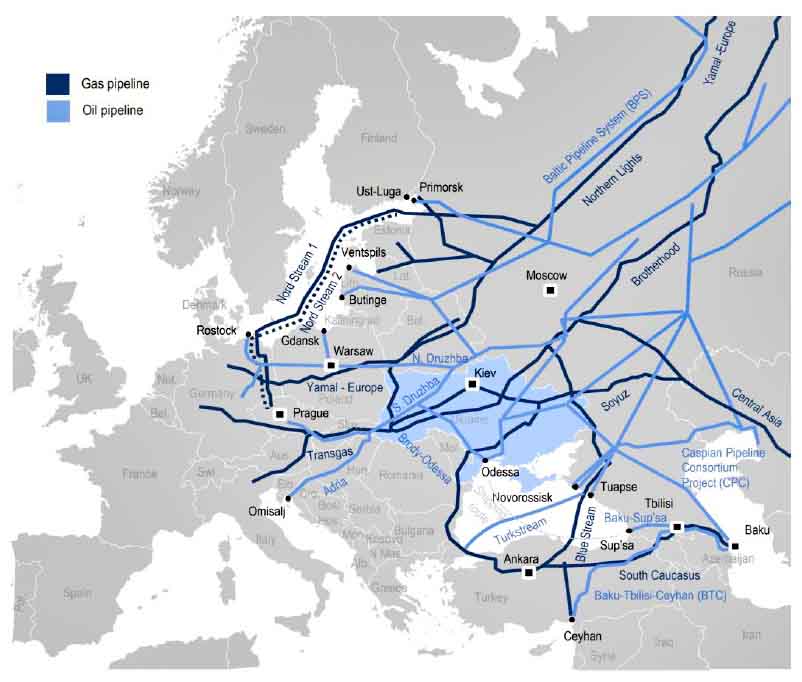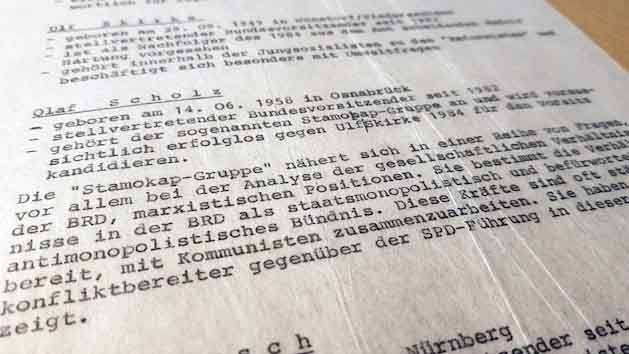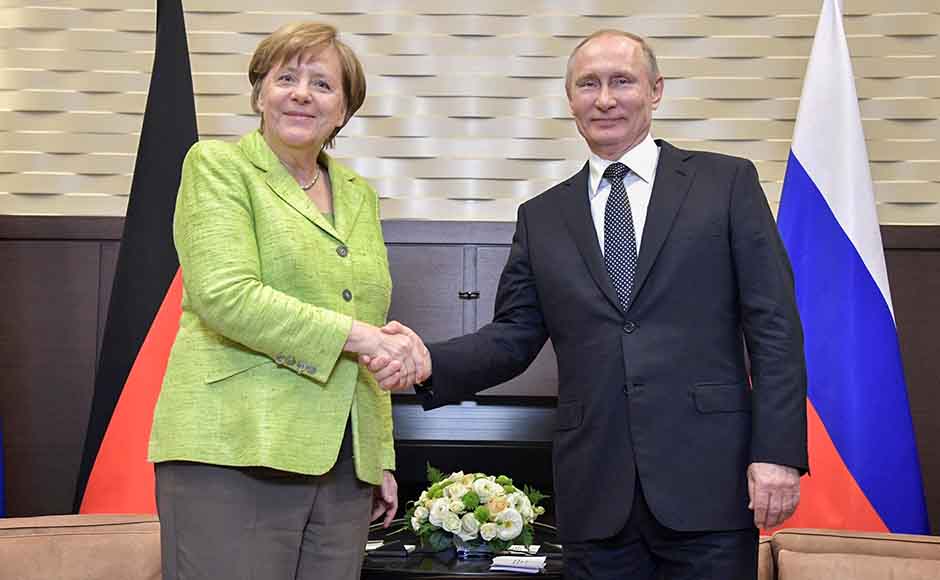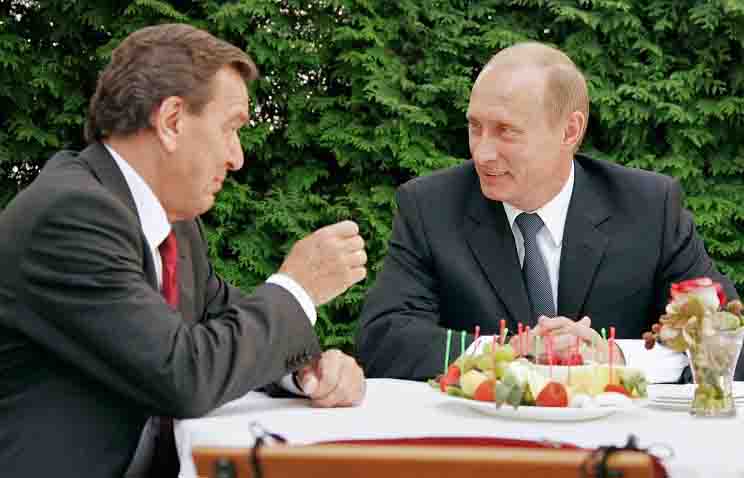While in the German press the current Chancellor Scholz is said to be performing "Eiertanz" — a dance with eggs: two steps forward, one step back — and about Schroder, that he is Putin's puppet, the media are very restrained about the former Chancellor Angela Merkel. She herself is absent from political life, especially after the outbreak of the war in Ukraine.
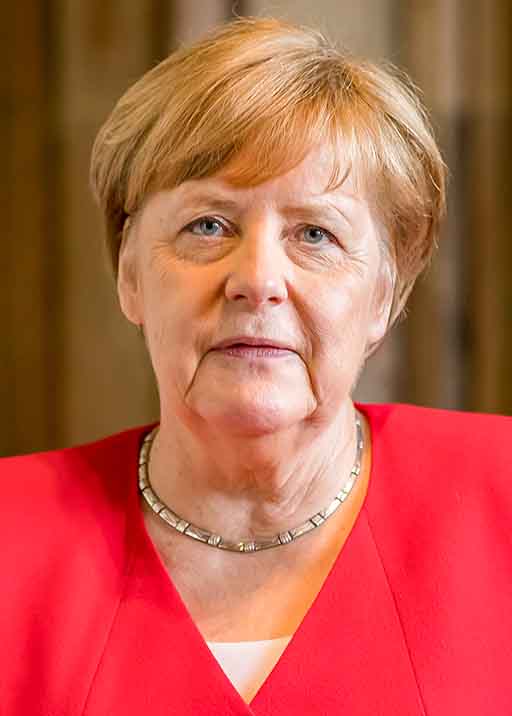
Angela Merkel (Source: Facebook)
In order to understand her behavior at least a little, it is worth tracing her past. Her background does not really match her current portrait. Angela's grandfather was Ludwik Kaźmierczak and he came from a Polish family. He was born in 1896 in Poznań as the illegitimate son of Anna Rychlicka-Kaźmierczak and Ludwik Wojciechowski. He carried his mother's name — Kaźmierczak. In 1915 he was mobilized to the Prussian army, and then he joined the "Blue Army", which was formed in France from Polish volunteers from America and prisoners of war of Polish origin from World War I. The commander of the Blue Army was the Polish general Józef Haller. Haller's army fought in France against the German Empire, and in the years 1919-1921, in the war to establish the borders of the Second Polish Republic and in the Polish-Bolshevik war. In 1923, Ludwik Kaźmierczak left for Berlin, and in 1930 he changed his name to Kasner.
Angela Merkel was born in 1954 in Hamburg. Her father was Horst Kasner, son of Ludwik, theologian and Evangelical pastor, and her mother was Herlind née Jentzsch — a teacher of English and Latin, born in Gdańsk and, until 1936, living in Elbląg.
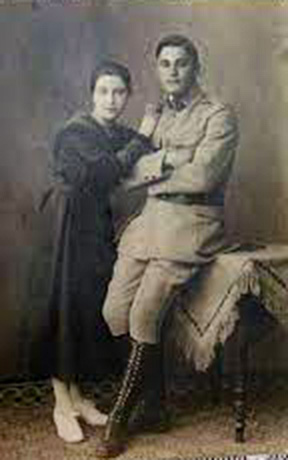
Ludwik Kazimierczak, Angela Merkel's grandfather, in the uniform of the Haller's Army, with his fiancée Margharette (Source: Wikipedia)
In the development of the future chancellor of Germany, one cannot discern any influence of Polish roots on the part of her father. On the other hand, the influence of the mother's German family is very visible.
Soon after Angela's birth, the family moved from Hamburg to Templin, where Horst took over the leadership of the Evangelical parish. In Templin, the future chancellor attended primary and secondary schools. In the years 1973-1978, she studied physics at the University of Leipzig. In the years 1978–1990, she worked at the Central Institute of Physical Chemistry of the Academy of Sciences of the GDR.
Her social environment had a great influence on the attitude of the future chancellor. Templin was located in the Soviet occupation zone in East Germany. Here, under the umbrella of the Socialist Unity Party (SED) and under the supervision of their parents, the profiles of "Soviet people" were being formed. Angela Merkel's father was a supporter of the SED regime and perhaps even a Stasi officer. When he moved from Hamburg to East Germany in 1957 as a pastor, he played a leading role in the liquidation of the then still German-wide organization of Protestant churches. He was a member of the Stasi-controlled "Weißenseer Arbeitskreis" and of the communist-controlled Christian Peace Conference (CFK). He was called the "red Kasner" in church circles.
Angela Merkel (née Kasner) was a member of the [Communist] Pioneers and the communist youth organization FDJ (Freie Demokratische Jugend, Free Democratic Youth) from the second grade onwards and was not only a passive member of it. She played a leading role in FDJ in the final year. She was also active in this organization during her studies in Leipzig. In 1991, she told journalist Günter Gaus: "I enjoyed being in the FDJ" and justified it by recalling their joint actions and her "70 percent opportunism". About her position at the FDJ, she said that, during her studies, she "was once a cultural officer" and "dealt with ordering theater tickets." This description of her duties seems quite euphemistic, as FDJ was a strongly ideological organization operating in the spirit of Marxism-Leninism and, according to its charter, believed that its main role was to assist the SED in "raising steadfast fighters to establish a communist society."
At the East German Academy of Sciences, Angela Merkel was also active in the FDJ to the point that, to her father's displeasure, she was making slow progress in writing her doctoral dissertation, which she began in 1978. She belonged to the leadership of the FDJ as secretary of agitation and propaganda, responsible for the Marxist-Leninist curriculum for FDJ members.
The ex-chancellor denies having engaged in such activities. She claims she was a "cultural representative" of the FDJ at the institute and only "arranged for theater tickets" and organized meeting and lectures. This does not seem very credible. Rather, it seems she wanted her involvement with the FDJ to appear apolitical in retrospect. This assumption is also confirmed by the fact that many former comrades were very surprised by her transition to the CDU after German reunification. Why to the CDU? Certainly not only the "comrades" from the Soviet zone were surprised by this. It must be remembered that Angela's mother became a member of the socialist party of the SPD, and not of the Christian CDU, after the reunification of Germany.
After graduating in 1978–1990, Angela Merkel became an assistant at the Central Institute of Physical Chemistry of the Academy of Sciences of the GDR (Zentralinstitut für physikalische Chemie der Akademie der Wissenschaften der DDR). In 1986, she obtained a doctorate in physical chemistry. At the same time, she was involved (since 1989) in the activities of the opposition East German party Demokratischer Aufbruch (Democratic Awakening). There, she worked directly for the party's co-founder and leader Wolfgang Schnur, who — for a quarter of a century — was the leading informant of the security service — the Stasi. During these years, Angela Merkel was responsible for receiving West German delegations, and, in January 1990, she became the press spokeswoman of the Berlin Regional Union. At least three of her colleagues from the above-mentioned Central Institute were registered by the Stasi as informants. Among them was Michael Schindhelm ("Manfred Weih"), with whom she shared an office for some time. When she joined the Democratic Awakening, she collaborated with another Stasi informant Wolfgang Schnur (alias "Torsten" and "Dr. Ralf Schirmer"). In April 1990, she became the deputy government spokesperson for the last prime minister of the GDR, Lothar de Maizière, who is listed in the MfS (Ministerium für Staatssicherheit, Ministry of Security Service) records as "Czerny". There are many indications that the future chancellor's cooperation with the Stasi actually happened.
In the FOCUS Online magazine of May 11, 2015, one can find the title: "Merkel in the files of the Stasi" (Merkel in einer Stasi-Akte). The situation applies to the years when the Solidarity Trade Union was established in Poland. Angela Merkel was then employed at the Central Institute of Physical Chemistry. The authors of the article (Reuth and Lachmann) write about Angela Merkel visiting Poland three times. On the way back, in 1981, the GDR border guards checked her bag. "The men immediately sent a report with the number 04-32-293-31 to the Berlin Headquarters (Operativstab), because — in her bag — they found two photos of the monument to a "Solidarity" martyr in Gdynia, a flyer of "Solidarity," and a "Solidarity" badge. Merkel told border guards that Polish friends took her and her companion to the Solidarity memorial site and gave them souvenirs. "Because she didn't want to be rude, she kept these items." Apparently she didn't know what they were about. The border guard wrote: "The citizen did not know that such items could not be brought to the GDR, and she did not speak Polish and could not even read the flyer". Reuth and Lachmann conclude that others would have "state security on their backs" in such a case and use this as evidence that Merkel, as a junior officer and academy member, was part of the "SED elite".
During the years of the GDR, Angela Merkel made frequent trips abroad, including trips to the West. In 1974 she took part in an exchange with students of physics in Moscow and Leningrad. In addition, she completed a Russian language course in Donetsk and completed a several-month-long research stay in Prague. In 1983, she illegally moved to the south of the Soviet Union. In 1986 and 1989 she was allowed to travel privately to the Federal Republic for several days. In the GDR, as in other countries belonging to the Soviet bloc, professional stays abroad had to be approved by the employer, and in the case of trips to the NSW (Non-Socialist Economic Territory), also by the state security service. Such trips to the West were a great privilege that was denied to most East German citizens. According to her own statements, she "traveled privately to the West." However, for scientists, who were often considered "secret bearers" in the GDR, approval was required from the relevant authorities before being allowed to travel, even in the case of private trips. If her permission to travel to the Federal Republic was "a reward for good political conduct," it might be concluded that she was favored by the MfS. So where is the truth?
In the TV news release "Tagesschau" of June 12, 2020, one could hear the question: "Did Angela Merkel spy for the Stasi?" The journal of the Frankfurter Allgemeine Zeitung asked the historian and former director of the Stasi memorial site in Berlin-Hohenschönhausen — Hubertus Knabe — to assess the situation and he immediately explained that there were no documents to indicate that Angela Merkel was an informant for the Stasi. However, if the "Merkel briefcase" is not there, it does not mean that it was never there. Angela Merkel herself claims that, although she received a job offer to MfS on the sidelines of the interview in 1978 at the Ilmenaum University of Technology, she did not take advantage of this offer. As a rule, such recruitment attempts did not take place spontaneously, but in accordance with Western German Directive No. 1/79 — only after a thorough verification of the candidate by the State Security Service. The prerequisite was being an Unofficial Collaborator (IM, Inoffizieller Mitarbeiter), in which it was necessary to document specific requirements and "already demonstrable scope and degree of their fulfillment".
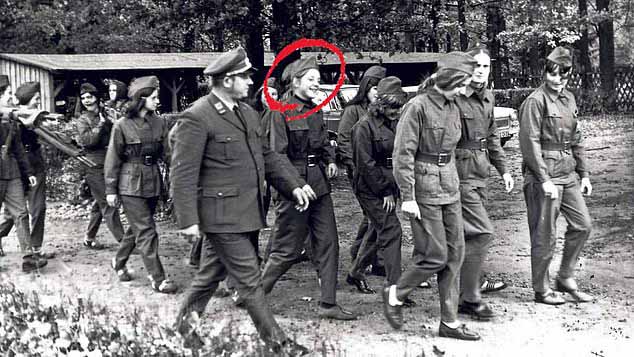
Angela Merkel - a young communist (Source: Pinterest)
Despite the multitude of traces and suspicions, it cannot be said that there are any documents confirming the spy history of the former German chancellor. The institution keeping the Stasi registers did not provide any relevant documents. This may be due to the fact that, contrary to the provisions of the Stasi, it did not create a formal IM file. Either the files were destroyed, or they contain only information about her and not from her, or they were taken from Dresden to Moscow when Vladimir Vladimirovich Putin left the "facility". And since the Act on the Stasi Records does not provide for the enforcement of information on the record, even in the case of the highest state offices, it is Merkel's sole responsibility to ensure transparency in this matter. And Mrs. Merkel is silent as a stone. But, while there is no evidence of this, there are certainly some inconsistencies. In any event, no explanations should be expected from the Chancellor, who continues to deny public access to her Stasi files and claims that "everything has already been said about this." However, if she does have something to hide, it should only be a matter of time before finding the relevant evidence. Hope is placed on the Fraunhofer Institute, which has been working since 2007 on a technical solution enabling the digital reconstruction of the secret files of unofficial collaborators destroyed by the Stasi just after the fall of the Berlin Wall and making them readable.
The attitude of the capital on the river Spree towards Russia occupies an important place in German foreign and security policy. Good contacts with Moscow have always been, as history shows, and are still considered important, for ensuring peace and cooperation in Europe. From the end of the First World War, treaties, agreements and "friendships" were concluded. Since the treaty of Rapallo (1922), there were quite a few of them: between Germany and the USSR — 111; after 1990, including the Russian Federation — 9; during the rule of Angela Merkel — 3. Currently, in the bilateral relations Berlin-Moscow there is a dialectic "to understand Russia", recently appearing under the euphemism "to understand Putin." It is nurtured by diplomatic and government circles, and scientists-historians from the left, through the Social Democrats, to the Alternative for Germany (AfD). The German word "Putinversteher" (to understand Putin) is already known in the world. This neologism even found its way to the English version of Wikipedia. Angela Merkel, who does not approve of Russia's current excesses of violence, is no stranger to this line but her attitude to the Russian president and his leadership style can be summarized as "yes, but we can understand his position."
Between October 2019 and February 2021, three phone calls and one press conference (January 13, 2020) took place in Moscow between Vladimir Putin and Angela Merkel as part of "Understanding Russia". The last visit of the Chancellor at the invitation of Putin took place in August 2021. During the 56th Security Conference in Munich (2017) "Questions and answers of the Minister of Foreign Affairs Sergey Lawrov", there was also an opportunity for an exchange of views between the Chancellor and the representative of Moscow. What could be heard then? What was Angela Merkel's position? When Putin delivered fiery speeches in Moscow in 2021, emphasizing the unwavering friendship and commonality of interests of both nations, the listener from Berlin had nothing to deny. Among others, following issues were raised then: “The Federal Republic is one of Russia's most important foreign trade partners and ranks second after China in terms of trade. (...) Russia and Germany are implementing several large projects in the field of energy policy. We appreciate the responsible position of the German government on the well-known Nord Stream II project."
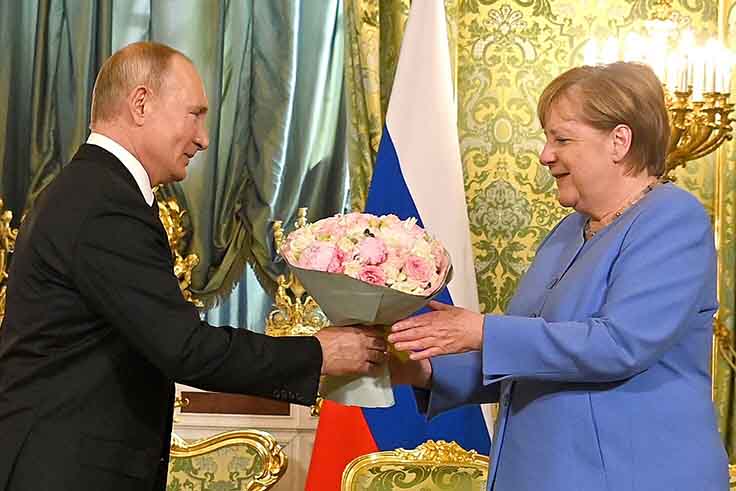
Last visit to Moscow - August 20, 2021 (Source: dpa)
To Putin's words, Angela Merkel replied: “I would like to thank you for inviting me to Moscow and for the opportunity to conduct a comprehensive and exhaustive discussion on, both, bilateral cooperation, and international affairs. Indeed, we can say that despite some difficulties (...) we have intense economic relations. (...). I believe that contacts between people, between the citizens of our two countries, can only be fruitful. "
The attitude of the ex-chancellor towards Putin's policy does not differ a whole lot from much earlier declarations known from history. When in July 1920 Tukhachevsky announced the goal of the armed offensive "over the corpse of the white Poland, to the worldwide fire", and "white Russia "suffered a defeat, British Prime Minister David Loyd Geroge was ready to "civilize Red Russia, dragging it into the peace and economic system of Europe after World War I"! So, it is not contemporary Germany that creates the narrative "to understand Russia" and not only during the reign of Angela Merkel the German governments do everything to "get along" with her. After all, we remember the famous formula of Willy Brandt and Egon Bahr: "change through rapprochement," at the time still concerning the USSR.
At the end of the above-mentioned speech by the former chancellor invited by Putin to Moscow (August 2021), the following words were uttered: "I believe that this [Nord Stream] project is also justified by the new European legislation and therefore we should complete it." And: “I can say that Germany and other European countries using Nord Stream (...) are interested in diversifying gas supplies and will continue to do so. I believe this is an important project. " This last sentence of Angela Merkel's statement is the key to revealing her ideological predispositions and affects her opportunistic attitude towards, and even agency for, Moscow. She "understands Russia", she "believes it is an important project". You have to ask: who is it important to?
The subject of "Merkel and Nord Stream" is rarely mentioned in the pages of German media. More space is devoted to it by the Swiss "Neue Zürcher Zeitung". Hansjörg F. Müller wrote (04/01/22) about this:
The Nord Stream 2 project falls entirely under Merkel's term of office: construction began in 2015, i.e. after the annexation of Crimea in violation of international law, when there was no longer any doubt as to the nature of Putin's regime. Apparently Merkel once called Nord Stream 2 "the devil's project". In this case, she chose the easier solution: "the pipeline is a private sector business."
The "Neue Zürcher Zeitung" also quotes Dr. Stefan Meister from the German Council on Foreign Relations about the ex-chancellor:
Mrs Merkel is already a phenomenon because she was the only chancellor who really understood Putin. Due to her East German origins, the former chancellor (CDU) could penetrate the logic of Russian politics and notice when Putin is lying to her. However, she did not draw any conclusions from this. Instead, she acted opportunistically, in the interests of her own power and in the interests of the German economy. ("Cheap gas was more important to the Germans than the freedom of their eastern neighbors").
Finally, Hans-Ulrich Jörges in the program "Quarter past eight" sums up:
Angela Merkel was more useful to Putin than Schröder! "
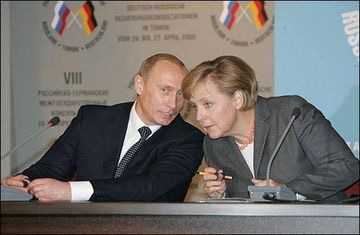
Merkel and Putin (Source: online812.ru)
Recently, Angela Merkel seems to have disappeared from politics. Her only official statement, but given by her spokeswoman, came when the President of Ukraine accused her of opposing his country's admission to NATO. In a written statement, she defended her 2008 decision to reject Ukraine's request. The spokeswoman said: "Former German Chancellor Angela Merkel upholds her decisions in connection with the 2008 NATO summit in Bucharest."
Since the outbreak of the war in Ukraine, she has consistently avoided any contact with the public opinion. In relations with Moscow, not only ex-Chancellor Schröder, but also Angela Merkel, is guilty of negligence, misappraisal and inappropriate decisions. She continued many elements of her predecessor's policy.
What is causing the chancellor's present silence? Is there a lack of will, strength, or courage, or maybe the Chancellor "understands Russia and Putin" better and is therefore silent?
Translation from Polish by Andrew Woźniewicz.



